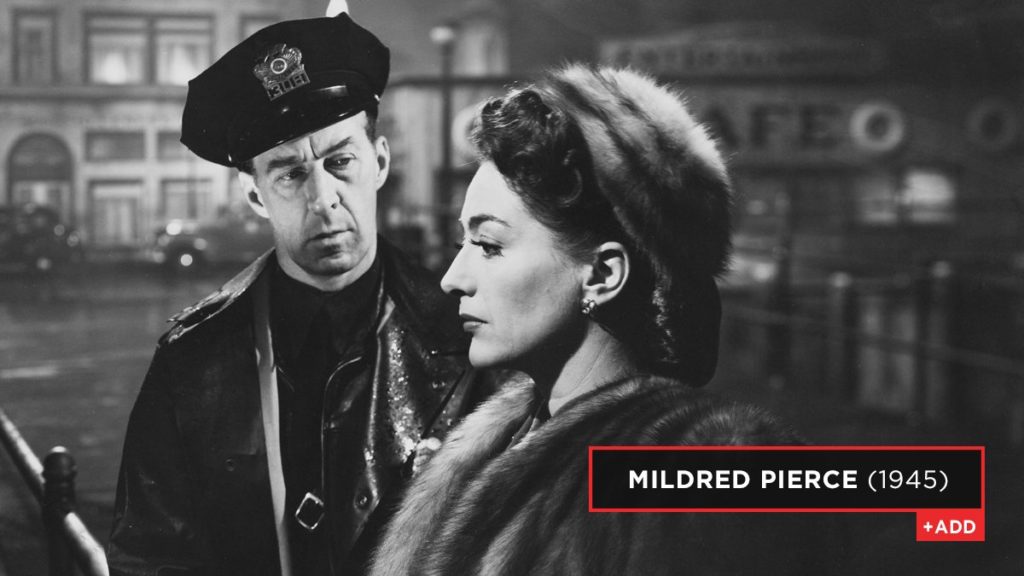
Mildred Pierce (1945) is one of those movies I recommend for people who haven’t watched many classic films. It’s moody, atmospheric, intricate, emotional, and surprising. For viewers unaccustomed to older movies, this is an accessible one. Some films noir, especially the crime-based ones, can leave untested viewers cold. Many of them may have stunning cinematography or strong performances, but they can often have a convoluted or even indecipherable plot (see: The Big Sleep). Even if one enjoyed watching it, at the end of it, there might not much to take away.
In contrast, Mildred Pierce features deep characters in emotionally complicated situations and an intelligent plot with unexpected twists, wrapped up in a beautifully shot black-and-white masterpiece with award-winning performances.
Mildred (Joan Crawford) is a devoted, hardworking mother. She divorces her ne’er-do-well husband and decides she will take any job, even as a diner waitress, to keep herself and her two daughters afloat. Her eldest, Veda (Ann Blyth), is nonplussed about her parent’s breakup, except for the fact that it means they won’t be able to afford fancy dresses and luxuries anymore. Mildred’s determination to make sure her girls had it better than she did has resulted in a terribly spoiled, materialistic daughter.
Mildred parlays her pie-baking side hustle into an extremely successful business, eventually owning her own restaurant. The place takes off, making Mildred extremely secure, if not fabulously wealthy. Mildred further spoils Veda in an attempt to win back her respect. After all, she is now a respectable businesswoman, not merely a waitress. Yet, Mildred’s success is both envied and despised.
In a rarity for the times, the story does highlight women as strong, central characters. The film passes the Bechdel Test on multiple occasions with numerous interactions. Possibly my favorite character is Ida Corwin (Eve Arden), Mildred’s friend and eventual business manager. She is brassy and blunt and has the best line of the film:
“Personally, Veda’s convinced me that alligators have the right idea. They eat their young.” I wouldn’t be surprised if that line alone earned her Oscar nomination for Best Supporting Actress.
It’s clear that the moral center of the film emphasizes that those who work (and are kind to others who do) are worthy while those who sponge off others are weak. It seems like an obvious, American value, but in 1945 there was a push to urge women back into the home and allow returning soldiers to run businesses. There was significant societal upheaval as those on the homefront were praised for keeping the country going, then scolded for not simply flipping a switch to get things “back to normal.” For our film’s hero to be a divorced woman who defied conventional roles (albeit related to the kitchen) would not have gone unnoticed. Neither would her dedication to being a good mother and honest person.
Director Michael Curtiz began his career in his native Hungary making silent films before coming to Hollywood in the early days. From The Adventures of Robin Hood, The Sea Wolf and Captain Blood, to Casablanca, The Unsuspected and White Christmas, his projects could be just about any genre but at their center they nearly always displayed a clear sense of right and wrong.
Perhaps this clarity of purpose, even in the midst of its noir elements, is what makes it such an accessible piece of work.
